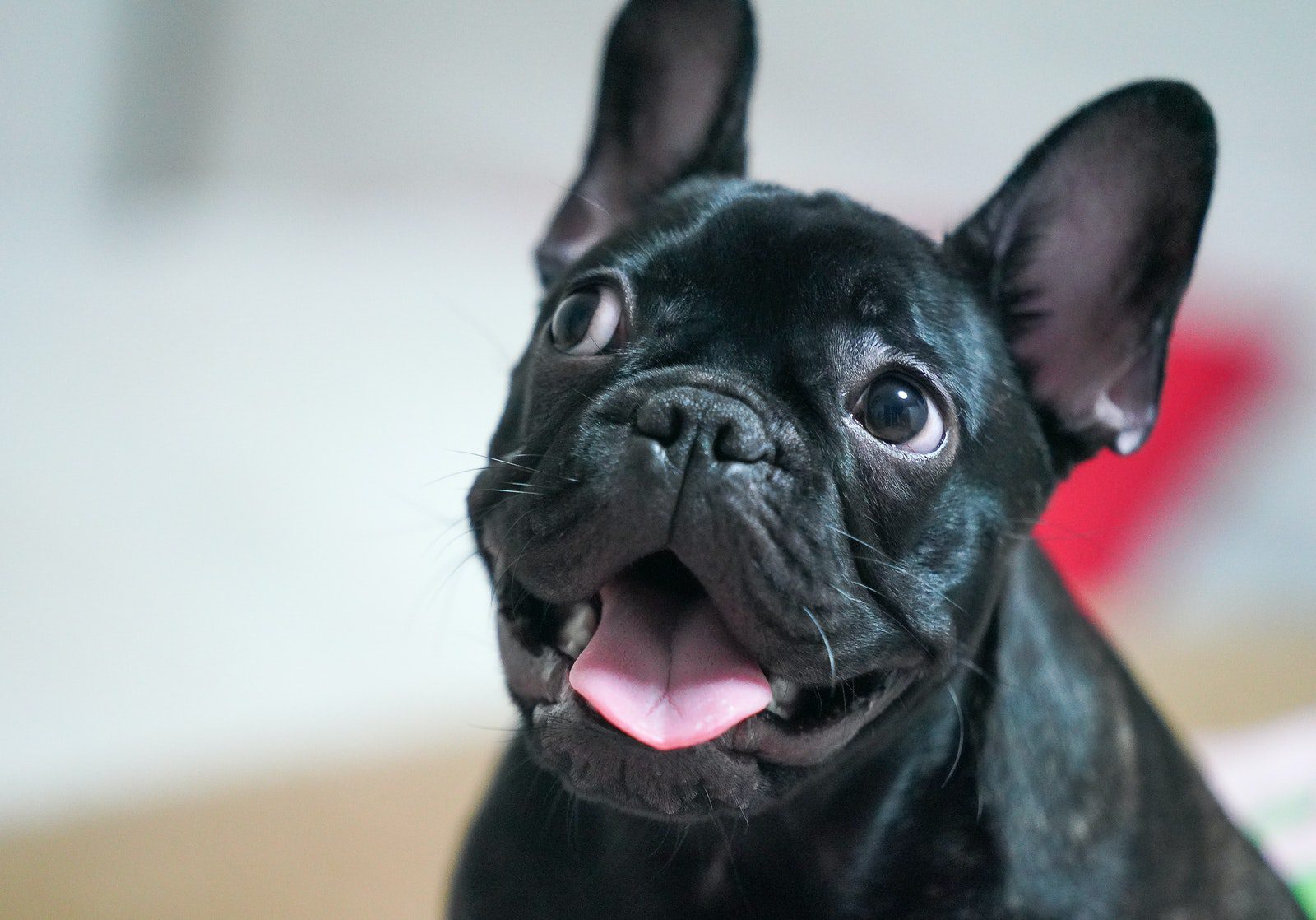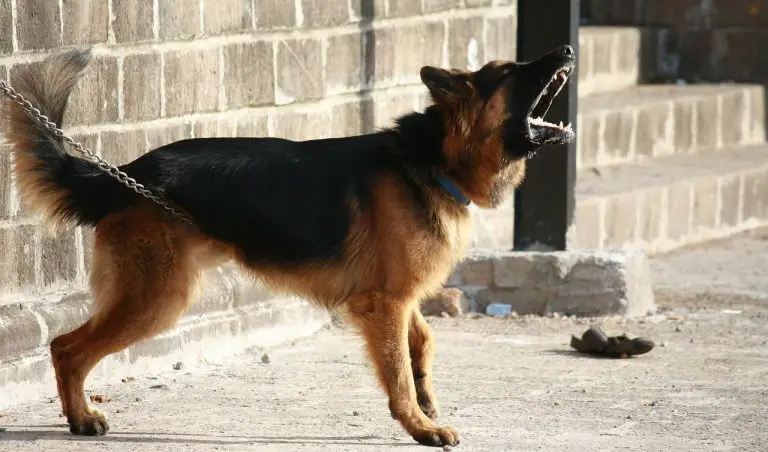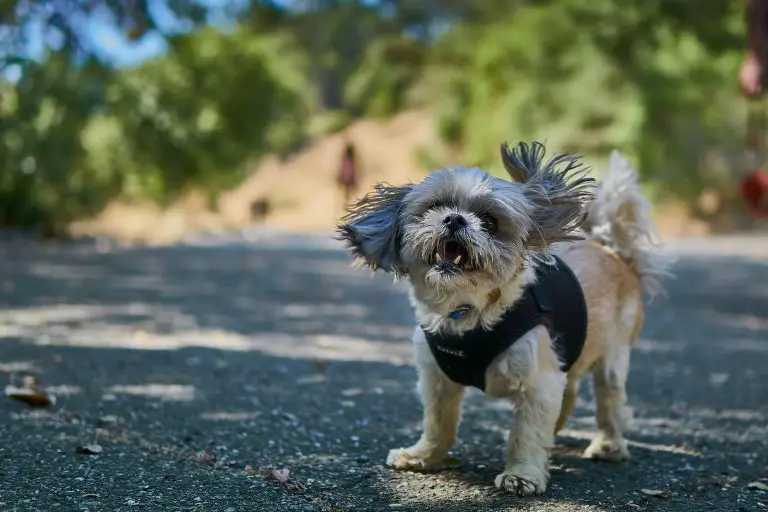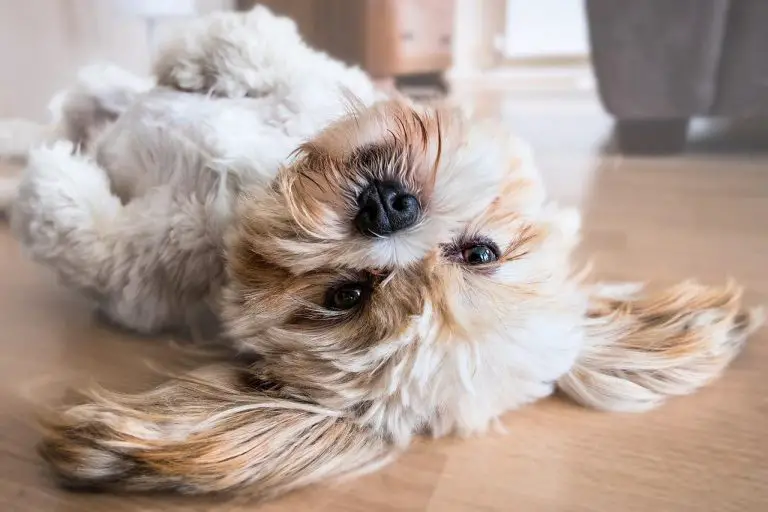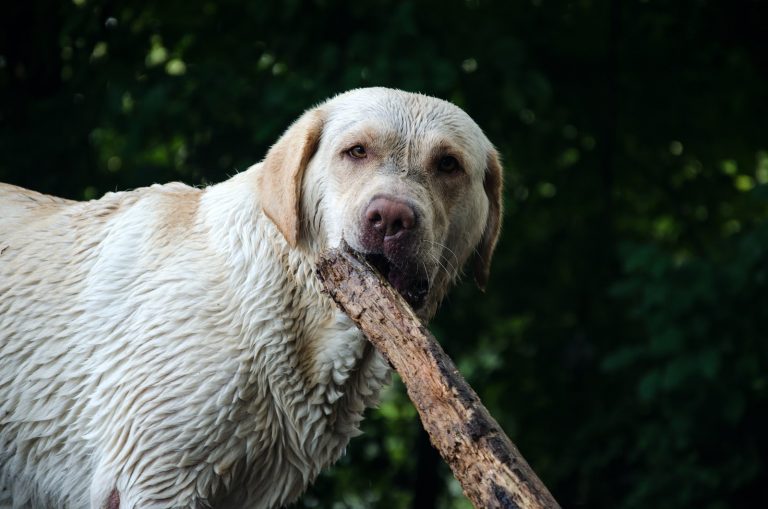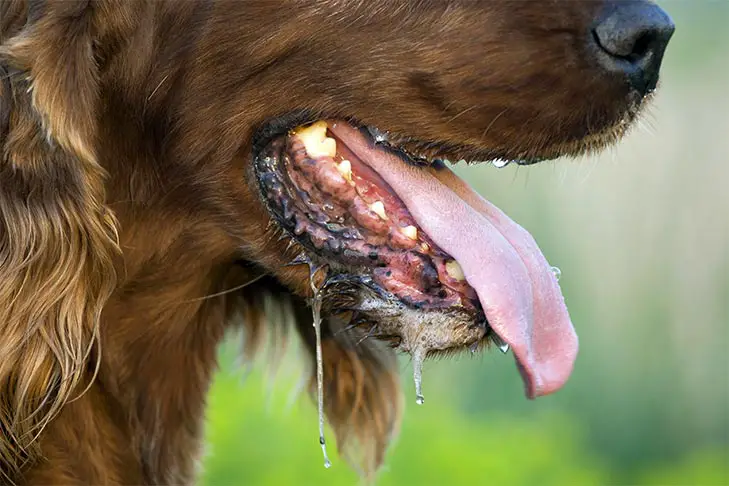Ever wonder why do dogs sneeze when we play with them?
A lot of us love dogs and love having them as pets. Pets are considered family for pet-owners, and there is a similar level of concern for its well-being because of that. That is why you may be alarmed if you’ve noticed that your dog tends to sneeze a lot when it plays with you or other dogs.
You don’t need to worry, though. Your dog’s sneezes during play are normal. In most cases, it’s not a sign of any illness, so you don’t need to take your friend to the vet.
Dogs sneeze to communicate with others (as weird as that may sound) when they’re about to play or during it. Even though the action is the same, the meaning always isn’t.
Here are a few reasons why your dogs sneeze during play and otherwise.
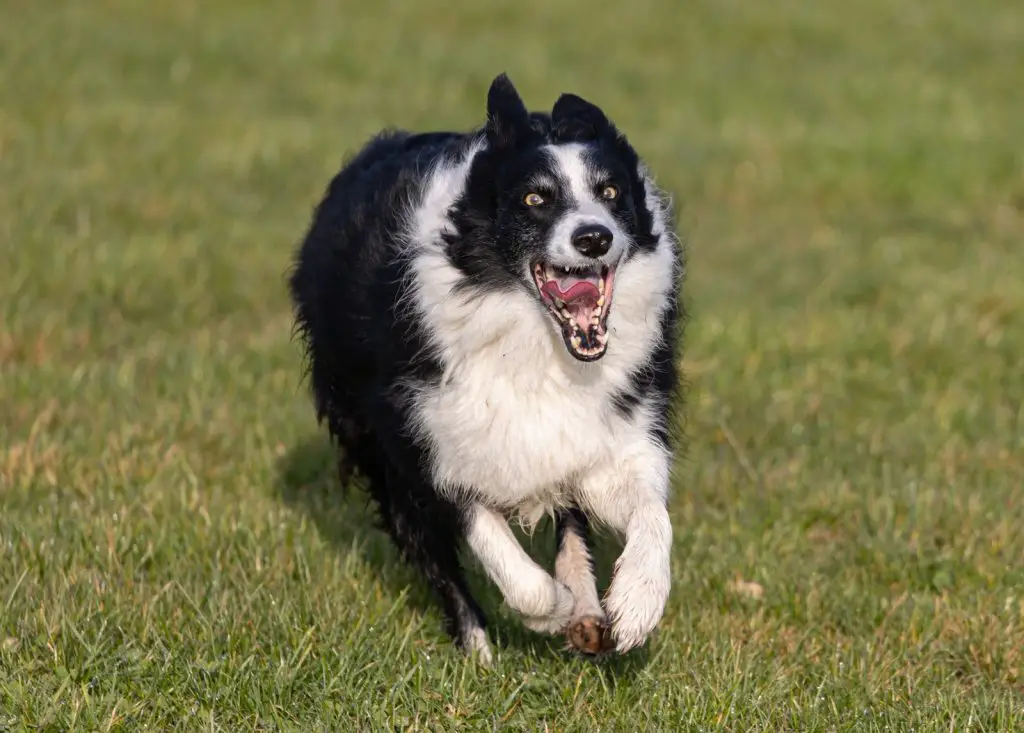
Dogs Communicate by Sneezing
Sneezing for dogs is a way for them to communicate with others. There are different messages they try and send through their sneezes, and their facial expressions and body language play a part in that.
You need to be conscious of its sneezes when interacting with your dog because they may be telling you that they need a break. It’s your job to read those signals so that your pet is comfortable at all times.
Dogs also sneeze to indicate to those they’re playing with that they’re having fun. It is a positive way of communication during play. This is their way of telling whom they’re playing with that they’re having a good time.
Dogs can’t talk like humans, so they have to communicate with each other in different ways. You can think of your dog’s sneeze during play as “hey, I like you, and this is fun.” That is why you may have noticed them sneeze a lot while they’re playing with you or another dog.
Many dogs – if not all – sneeze as a form of communication when playing to indicate that they’re enjoying themselves. It is one of the communication skills that they can better develop through socialization with other dogs.
In most cases, your pet’s sneezes during play are not caused by an allergic reaction to something in the atmosphere. It just means that they’re happy. This means that you can rest easy knowing that there’s nothing wrong with your friend. They want to you know that they enjoy your company. Isn’t that sweet?
Watch how dogs sneeze while playing.
Dogs don’t always sneeze to tell other dogs that they’re enjoying themselves when they’re playing. If you notice your dog sneeze when engaged in a playful scrimmage with another dog, it is using it for a different meaning in its communication.
When playing with other dogs, dogs sneeze to tell the other dog it is playing with that their interaction is not a real fight – it’s only part of the play. Thus, even though it may seem like they’re fighting with each other, your dog’s sneezes are keeping things at bay. This form of communication saves the play from accidentally turning into an aggressive battle between the two dogs.
This sneeze is often referred to as a “calming signal” by Turid Rugaas, an expert dog trainer from Norway. Dogs rely on other ways of communicating than just barking in various situations.
Facial expressions, along with body language, are also important ways of communicating during play — this way, they indicate to their playmates that everything is right and that they’re happy.
Dogs use all of these communication methods together to tell each other that they need things to slow down a bit. These sneezes function as calming signals, which aim to inform the other dog that their play is getting too aggressive and that their behavior to each other needs to calm down. It’s also a way for your dog to communicate that it needs a break for play. This can be a signal to both you and other dogs it plays with.
Dogs usually send signals to invite another dog or you to play with them. Some of these signals include taking a bow, flashing their eyes so that the white bit shows, panting, and of course, sneezing.
James O’ Heare, in his book “The Dog Aggression Workbook, 3rd Edition,” mentions that these signs are a possible way to highlight the fact that they have no intention to harm their invitee.
Other than communicating, your dog may also be sneezing during play because it needs to sneeze involuntarily. In many cases, your dog makes a specific facial expression when it is excited or happy during play with you or other dogs.
What happens is that your dog will curl its lip when it’s having fun while playing. This expression can lead to a tickling or itching sensation on your dog’s sensitive nose.
This tickle of the nose can cause it to sneeze – which is a normal and healthy reaction to a nose itch or tickle. This wrinkle of the lip can be understood as their way of grinning when happy, which is a rather cute way to think about it.
Dogs have sensitive noses, and because of that, their noses are irritated or agitated easily. This leads to frequent sneezes by your pet. You don’t need to worry because this is normal, and the fact that is happening is a sign that everything is okay in your pet’s body.
Dogs can sometimes also use sneezes to indicate that they want to play or to get attention from others. These fake sneezes are usually used when they need to communicate, and the sound and intensity are often different between this case and in the case of an actual allergy and illness. This may be an indication that dogs do fake sneezes when they want to.
There is still some debate about whether or not dogs have some control over their sneezing on some occasions. Some dog-owners also claim that they have managed to train their dog to sneeze whenever they want it to.
That may sound weird to you because coughs and sneezes are generally involuntary actions, and the action can’t be performed at will. Thus, it is still unsure whether dogs can sneeze at will or if they fake the sneeze to communicate with others.
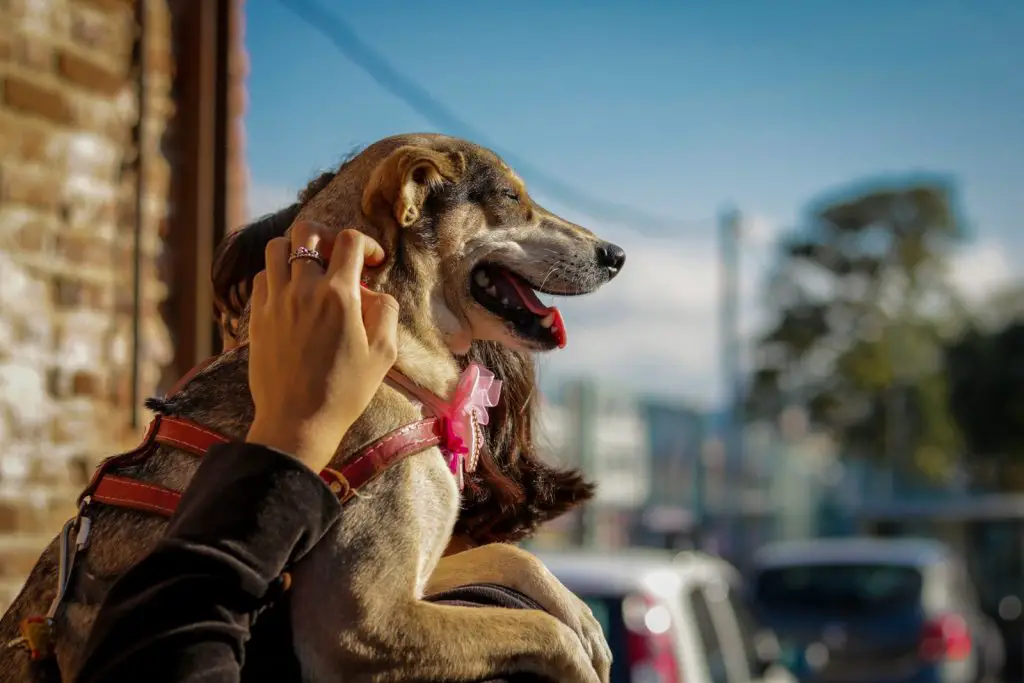
When All of Your Dog’s Sneezes Aren’t a Communication Tool?
This doesn’t mean that all sneezes are a way for your dogs to communicate. They can also sneeze when something irritates their nose like dust, pollen, or certain smells like perfumes.
If you notice your dog sneezing frequently and in different circumstances, you may want to keep an eye out for any possible cases of allergies or illnesses.
If you have a dog that generally searches for things with its nose to the ground, you should keep an eye on its sneezing habits. If it is sneezing a lot after such searches, digging in the backyard, or during hunting trips, then there is a chance that something small like a twig or leaf may have gotten stuck there. This will irritate its nose and cause it to sneeze more often.
If you see that your pup is sneezing in your home, even outside of play, there is a chance that the environment is causing an allergic reaction. Dogs’ noses are so much more sensitive than human noses, and thus can be irritated with a lot more ease. You may not feel that there’s something that is bothering your nasal passages, but your dog might.
In that case, you should try and see how it reacts in a different environment – when you take it for a walk, for example. The smell of certain perfumes or chemicals can irritate your pet’s nose and cause them to sneeze. Try and identify the problem, and make changes in your and your dog’s home accordingly.
Your dog’s sneezes, for the most part, are not something to worry about. However, if you notice it happening frequently and in different environments, there may be a chance that it has caught a nasal infection. Consult your vet if you feel that this is a possibility.
Rhinitis is an upper respiratory tract malfunction, which is the inflammation of your dog’s mucous membranes. It is commonly caused by viral infections and should be treated by your vet as soon as possible.
Sneezing, along with nasal discharge, open-mouth breathing, and snoring, are some of the signs of rhinitis. Your dog may paw at its face if there is a foreign object stuck in its nose. Also, nasal discharge from one of your pet’s nostrils may be an indication of this. Check-in with your vet if you’re unsure of what your dog’s condition is.
Your dog can also start sneezing because of a runny nose that’s caused by an infected tooth. Some of the roots of your dog’s teeth on its upper jaw are close to its nasal passages.
An infected tooth can cause an abscess in its gums. As a result, the accumulation of pus can affect your dog’s sinus cavities and infect it. This infection can give your pet a runny nose, which will cause it an irritation to its nose and make it sneeze.
If your dog is frequently sneezing, there is a possibility that it may have a tumor in its nasal passage – however, this is rare, so you don’t have to assume the worst right away.
If your dog is exposed to a lot of second-hand smoke, then it could result in it developing the tumor. This is also more common in dogs that have longer noses than others. Inspect your dog regularly and keep an eye out for any signs of illnesses.
Take your pet to the vet if you observe something unusual.
On rare occasions, there is a possibility that your dog’s digging around in the ground or interaction with other dogs may cause it to pick up mites in its nasal passage.
Frequent sneezing could be a sign of this condition. Ticks are small parasitic creatures that measure about under a millimeter. They hide on the surface of your pet’s skin and cause inflammation and painful itchiness.
Some of the other symptoms for this condition include a loss of hair in patches or over your pet’s entire coat, persistent scratching over the affected area, dandruff, or patches of red skin. If you notice any of these symptoms, get a diagnosis from your vet, and get your dog treated for it.
After your dog has been treated for mites, be sure to clean everything that it comes in contact with, like its bed or carpets. It can pick up bugs again if the environment around it is not swiped clean for mites.
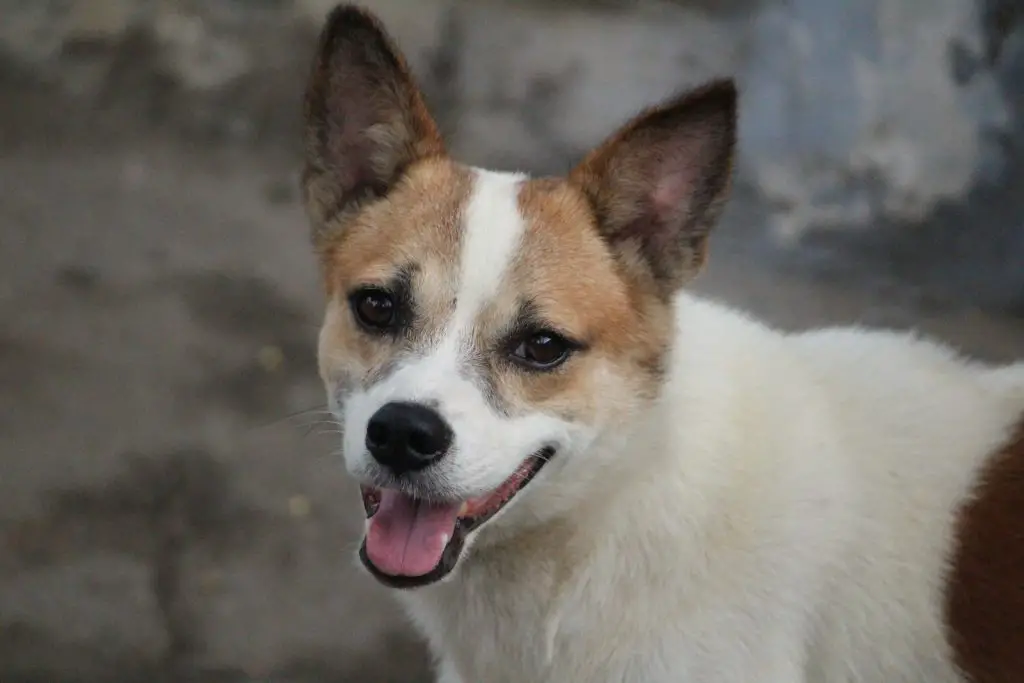
You Don’t Need to Worry About Reverse Sneezes
You may also have, at some point, noticed that your dog makes a weird snort-like sound and takes in air through its nose. This is referred to as a reverse sneeze by experts. It’s a spasm that is caused when something is irritating your dog’s throat or nasal cavity. It involves a short and quick burst of air coming in through your dog’s nose instead of it going out.
You may be worried when you see it happen because it seems as if your pet is struggling to breathe, even though that is not the case (in some cases, some owners also think that reverse sneezes sound like their dog’s laughing). Reverse sneezing does happen often, but it is rarely a cause for concern.
It often happens when your dog has a blocked nose and does this action in an attempt to clear it. You can gently massage your friend’s throat, or you can place your hand on its nose when it happens so that it can stop reverse sneezing and get back to breathing normally. Your dog should be okay regardless of the reverse sneezes, but you can take your pet to the vet if you want to be sure.
There’s a Difference Between Sneezes During an Illness and Play
There is a slight difference between a sneeze caused by an allergy or illness and your dog’s sniffles during play. You will have to pay close attention to be able to tell the difference between the two. A sneeze caused by an allergy or illness is usually a lot more intense and more prolonged than a sneeze during play.
A sneeze during play sounds the same but is less intense, shorter, and comes from the nose and not the lungs. The wheezing is more like an animated snort or a quick passage of air from your dog’s nostrils.
In addition to that, a sneeze caused by illness is usually accompanied by discharge through the mouth or nose. In this case, the sneeze has a release of fluid-like mucus. Also, another easy of telling if your dog is sick is if it coughs more often than it sneezes.
Dogs tend to cough more than they sneeze if they have an upper respiratory tract infection. Other symptoms you may notice of such an infection include a runny nose, nasal discharge, or reddened and itchy eyes. If you notice any of these symptoms, you should take your friend to the vet right away so that it may get onto the path of recovery as soon as possible.
Parting Thoughts on Why Do Dogs Sneeze When We Play With Them
Dogs need to socialize with other dogs. It helps them hone their communication skills with others like them and will be mentally healthier that way. A lack of socialization will cause it to be a social outcast, and that will affect how it behaves with other dogs and generally.
That is where learning to sneeze during rough play with other dogs is essential to learn. As mentioned before, this is a method of communication that whatever elapses in that “fight” is all in good fun and nothing more.
Dogs are lovely animals and beautiful pets who often sneeze in different situations. In most cases, your dog sneezes during play to send friendly signals to you or other dogs it plays with. Don’t worry. Your dog is okay if it sneezes when playing; in fact, it is more than okay.

